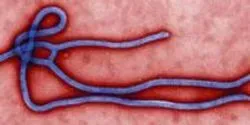Biological Sciences

Women exposed to high levels of fine particulate matter specifically during pregnancy—particularly during the third trimester—may face up to twice the risk of having a child with autism than mothers living in areas with low particulate matter, according to a new study from Harvard School of Public Health (HSPH). The greater the exposure, the greater the risk, researchers found. It was the first U.S.-wide study exploring the link between airborne particulate matter and autism.

For its 2014 BioArt Awards, the Federation of American Societies for Experimental Biology (FASEB) awarded top honors for an image produced by postdoctoral fellow Sabriya Stukes and processed by Hillary Guzik in the Albert Einstein College of Medicine's Analytical Imaging Facility.

Forgetfulness, it turns out, is all in the head. Scientists have shown that fading memory and clouding judgment, the type that comes with advancing age, show up as lost and altered connections between neurons in the brain. But new experiments suggest an existing drug, known as riluzole and already on the market as a treatment for ALS, may help prevent these changes.

Ames Laboratory scientists use genetic markers to discover the rhizosphere.

Sparks literally fly when a sperm and an egg hit it off. The fertilized mammalian egg releases from its surface billions of zinc atoms in “zinc sparks,” one wave after another, found a Northwestern University-led interdisciplinary research team that includes experts from the U.S. Department of Energy’s Advanced Photon Source at Argonne National Laboratory.

Collaborating scientists from The Scripps Research Institute (TSRI) and the University of California (UC) San Diego have developed a powerful new system for studying how proteins and other biological molecules form and lose their natural folded structures.

A common over-the-counter drug that tackles pain and fever may also hold keys to a longer, healthier life, according to a Texas A&M AgriLife Research scientist. Regular doses of ibuprofen extended the lifespan of multiple species, according to research published in the journal Public Library of Science-Genetics.














